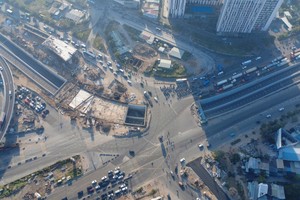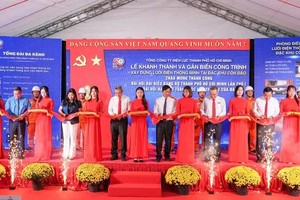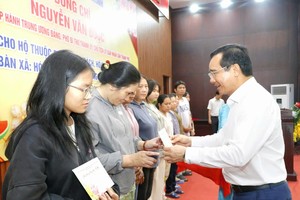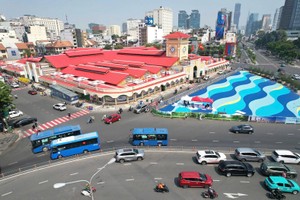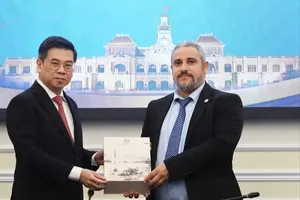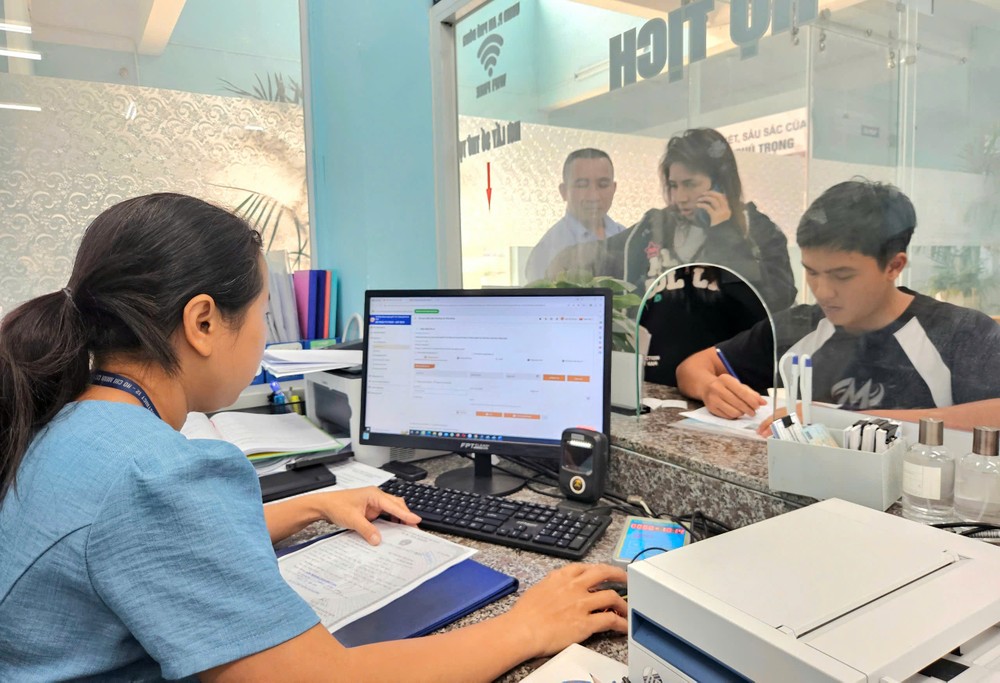
By 2025, Ho Chi Minh City aims to streamline all of administrative procedures, eliminating geographical boundaries to maximize convenience for residents and businesses.
The implementation of administrative procedures and bringing the administrative system to the digital environment is considered one of the important factors to improve the quality of service for people and businesses when there is no district-level government.
Digital citizen training
At the end of March, a 29 year old man residing in An Phu Dong Ward of Ho Chi Minh City’s District 12 went to the ward People's Committee to complete the birth registration procedure for his child. After being instructed by the one-stop-shop staff, he used his VNeID account to submit the application online on the public service portal.
As soon as he logged in and selected the public service, his personal information on VNeID was automatically filled in the application form. It only took a few more minutes to enter other information and upload documents. He completed the application and registered to receive the results at home.
He observed that the online application process was comprehensive and well-guided by the system, allowing users to complete each step with ease. The ability to pay fees online added to the convenience, enabling individuals to submit applications from any location, make payments seamlessly, and receive their results at home via postal service.
Tran Thi Thu An, a civil servant at the Justice - Civil Status Division of the An Phu Dong Ward People's Committee, stated that Ho Chi Minh City has integrated birth registration, permanent residence registration, and health insurance card issuance for children under six years old. As a result, applicants only need to submit a single application to receive all three documents.
Many other administrative procedures in the southern metropolis are provided online throughout the process, helping people save a lot of time and money when performing administrative procedures.
Those who have not used online public services, when coming to the ward People's Committee to do administrative procedures, will be instructed on how to log in to the online public service portal via VNeID to submit their application.
Chairwoman Nguyen Thi Kim Tuyen of the People's Committee of Vinh Loc B Commune in Binh Chanh outlying district said that some residents of the commune, which has a population of over 140,000 and is one of the six most populous in Ho Chi Minh City, have not yet become proficient in using online public services.
Therefore, the commune has stepped up propaganda, guided people by various ways and even the local administration established a special team who are responsible for instructing people to do administrative procedures when they need to do online public services.
In 2024, the commune received more than 31,000 records from people and businesses. On average, each day, the commune's staff processed and resolved more than 130 records.
In the near future, when the communes are reorganized, the population will increase, so it is necessary to promote the application of information technology, strengthen the deployment of online public services to reduce the workload for officials. However, machine learning equipment, infrastructure, and data serving the application of information technology and digital transformation are still limited, causing difficulties in the smooth implementation of administrative procedures.
Administrations in HCMC cut down processes and simplify procedures
According to Director Lam Dinh Thang of the Department of Science and Technology of Ho Chi Minh City, the department will organize training courses on artificial intelligence (AI) human resources for officials, civil servants, and public employees in the city this year.
These training courses will be conducted continuously until a sufficient number of city officials, civil servants, and public employees have been trained, guided, and developed. The program aims to both introduce modern AI tools and promote their practical application in daily operations, enhancing efficiency, streamlining workflows, and improving public service delivery. Additionally, the training will emphasize information security in AI usage and equip ward and commune officials with IT tools to facilitate information management and communication within neighborhoods and hamlets.
Ho Chi Minh City is simultaneously enhancing its citizens' IT skills, restructuring administrative workflows to eliminate redundancies, and fostering data interoperability to improve online service delivery.
Recently, Chairman Nguyen Van Duoc of the Ho Chi Minh City People's Committee issued a directive requiring agencies and units to streamline administrative procedures. The directive mandates a reduction of at least 30 percent in processing time for administrative tasks and the elimination of at least 30 percent of procedures containing unnecessary business conditions.
Additionally, it calls for proposals to relevant ministries and agencies to implement similar reductions within their authority. These efforts aim to lower business costs by at least 30 percent, easing administrative burdens for both individuals and enterprises.
The southern largest city is persistently enhancing its administrative information system to streamline procedures.
According to Vice Chairwoman of the municipal People's Committee Tran Thi Dieu Thuy, all of administrative procedures and online public services are currently deployed on the Ho Chi Minh City administrative procedure settlement information system. The southern metropolis has provided 672 online payment monitoring accounts on the National Public Service Portal for departments, agencies and localities to monitor online payments on the system.
Every day, the system processes about 10,000 records, providing all qualified online public services. The system has been expanding connections with many fields and specialized software of ministries, agencies, departments and localities to share data to serve the city's exploitation needs.



